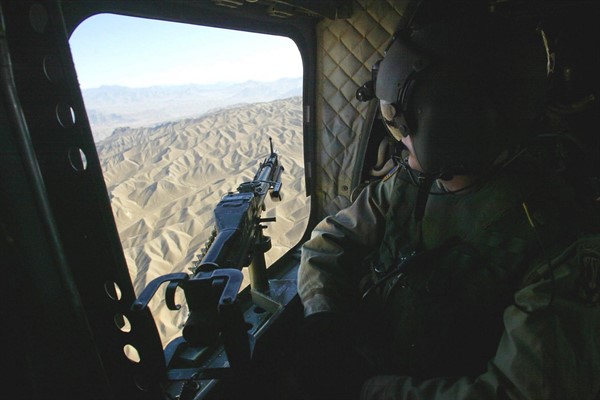The 20th anniversary of 9/11 is an opportune moment to reflect on the lessons the United States drew from those horrible events. One of the most problematic was the belief that the main threats to U.S. and international security emanated not from powerful states, as in the past, but from weak and failing ones. This questionable conviction led to a sweeping reorientation of U.S. foreign and national security policy that distracted the country from more important sources of danger and reinforced a militarized approach to the very real development and humanitarian needs of the world’s fragile states.
In late summer 2001, the United States was at the zenith of its unipolar moment, with no peer competitor. The ability of al-Qaida to organize and carry out a devastating surprise attack on the U.S. homeland from Afghanistan, one of the most impoverished and least developed countries on Earth, delivered a shock to the national psyche comparable to and arguably greater than Pearl Harbor. Within U.S. policy circles, a new consensus quickly emerged, which then-President George W. Bush articulated in his first National Security Strategy published in June 2002: “America is now threatened less by conquering states than by failing ones.” The implication of 9/11, the author Thomas P. M. Barnett wrote in his bestselling 2005 book, “The Pentagon’s New Map,” was clear: “Disconnectedness defines danger.”
This new threat perception quickly became the conventional wisdom among government officials, journalists and analysts—including, for a time, myself. “When development and governance fail in a country,” the U.S. Agency for International Development, or USAID, breathlessly declared in January 2002, “the consequences engulf entire regions and leap across the world. Terrorism, political violence, civil wars, organized crime, drug trafficking, infectious diseases, environmental crises, refugee flows, and mass migration cascade across the borders of weak states more destructively than ever before.” This perspective enjoyed strong bipartisan support. In his first major speech as a Democratic candidate for president in April 2007, Barack Obama proclaimed that “impoverished, weak and ungoverned states…have become the most fertile breeding grounds for transnational threats like terror and pandemic disease and the smuggling of deadly weapons.”

